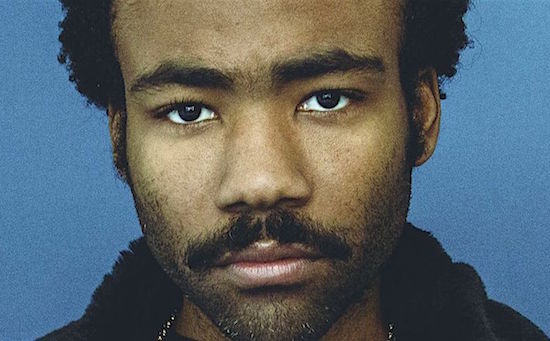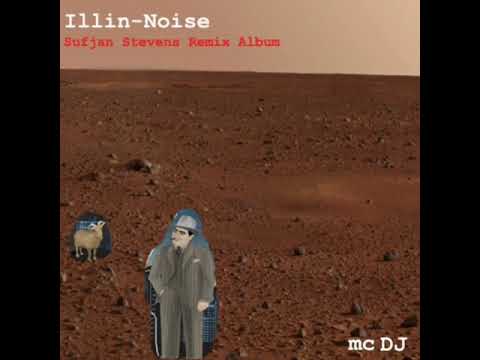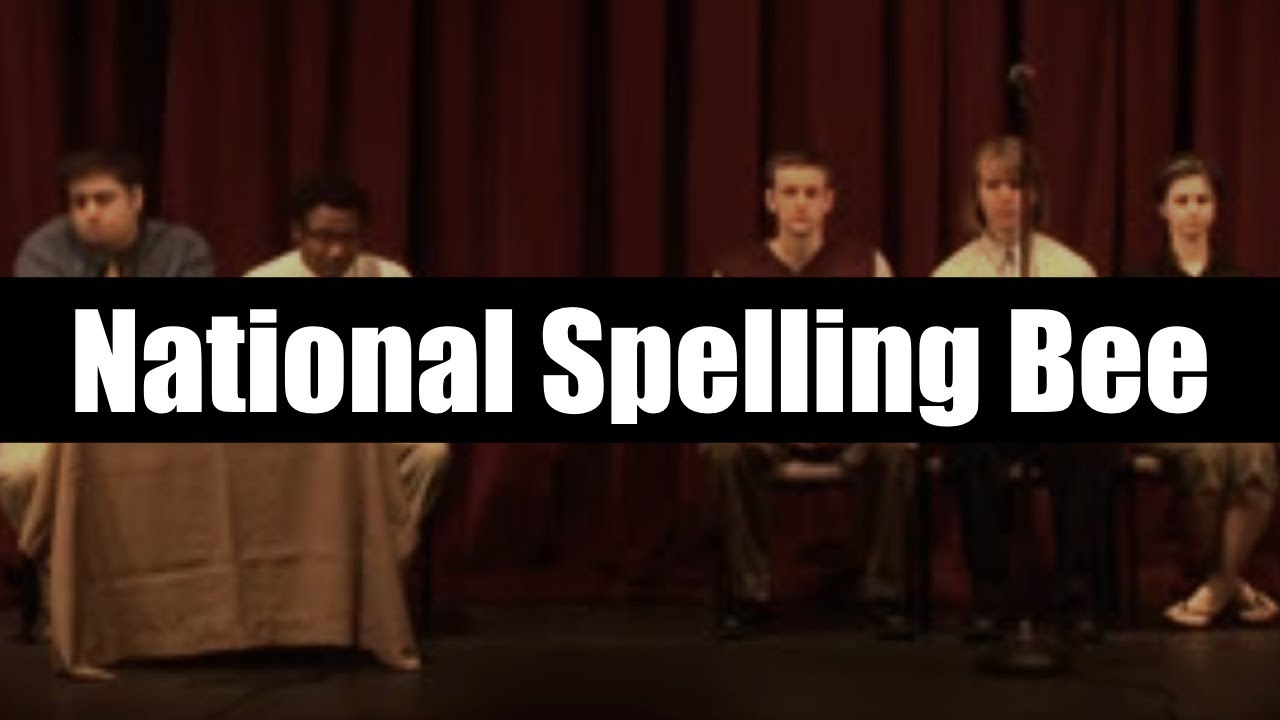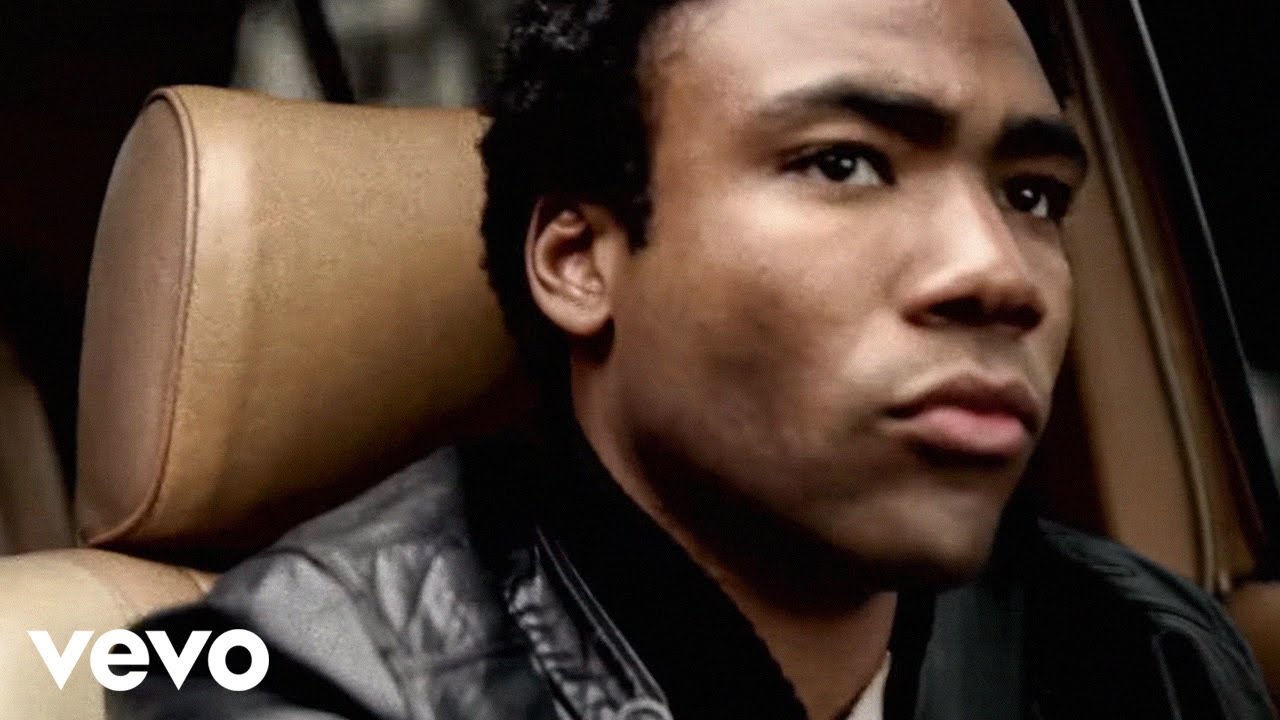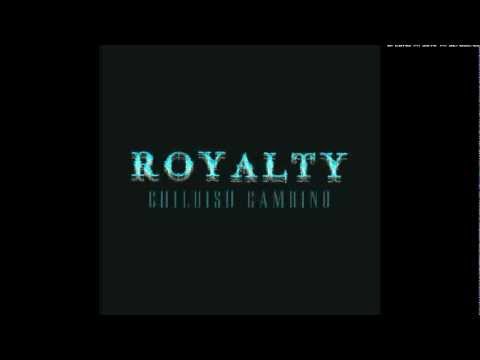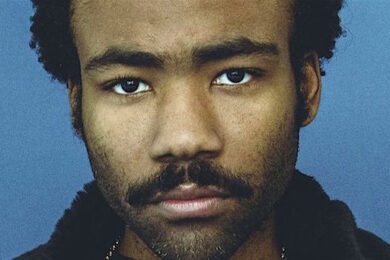“I’ll see you for the last Childish Gambino album”, Donald Glover told his crowd at the Governor’s Ball in 2017. Less than 12 months later, he dropped ‘This Is America’. Regardless of its cultural importance, the song and the video are both captivating – in terms of message and music. Continuing his upward progression, it brought with it a new identity for the artist, presenting us with his least traceable incarnation. The hype surrounding it shows no sign of stopping, as the ever-growing myriad of think pieces and video essays blossoms, so does Glover’s fame.
Throughout his many phases, under the guise of Childish Gambino, Glover has proven to have an innate ability to mutate any preconceived ideas of what he is as an artist. Going from homemade beats, to glossy pop rap, to neo soul – not only has he constantly twisted his musical aesthetic with most of his releases, he also seems to come from a newly evolved stand-point with each one. Beginning a whiny edge lord, before rocketing up a spiral of existentialism and emerging a conscious rapper.
But the notion of Glover’s ‘importance’ has only recently been realised in critical circles. As recently as five years ago Childish Gambino was a bit of joke, being the butt of scathing review upon scathing review, earning him the accolade of being a “part time Kanye West impersonator”. It wasn’t until 2016’s Awaken, My Love! that Glover’s music as Childish Gambino was even taken seriously by anyone.
Before his debut LP Camp, Glover had already garnered fame as a writer on 30 Rock, as a stand-up comedian and as an actor in the series Community, where he played Troy Barnes. This, when levelled with the poor quality of his early musical work, left Glover seemingly destined to reside in the company of celebrities like Will Smith; part of a lineage of good comedic actors turned bad rappers. In retrospect, this idea now feels ridiculous. It’s strange to recall a time where Donald Glover’s music was the butt of a joke, not the centre of a thousand think pieces. But, a delve into his early repertoire seems to justify how attitudes surrounding him have changed.
mc DJ – Illin-Noise! (2005)
Before he was Childish Gambino, Glover remixed albums as mc DJ. A love of indie artists has become a bit of a motif in his music; he’s always been keen to speak of his adoration for LCD Soundsystem and you can spot him in the crowd during their Shut Up And Play The Hits film. As well as this, he references Arcade Fire on his 2011 track ‘Be Alone’; Ariel Pink on ‘Freaks And Geeks’ and samples Grizzly Bear on ‘Bitch Look At Me Now’. These references make Illin-Noise!‘s existence less perplexing – his take on Sufjan Stevens’ Illinois is more of an interesting outlier in his back catalogue than anything else. By moulding these twee ballads into cutesy hip hop beats he creates something that is novel and fun, but ultimately a chore to get through. Being a quaint anomaly in his admittedly gigantic repertoire, the reworking also highlights that Glover is as sufficient at making beats as he is gracing them.
Childish Gambino – Sick Boi (2008)
Taking his alias from a Wu-Tang name generator and making beats on a pirated version of FL Studio, Gambino’s early mixtapes paint him as nothing more than a painfully misjudged hip hop parody. Pretty much unanimously hated by most people who’ve heard it, Glover’s first project as Childish Gambino feels far from being the seed of his current output. In fact for the most part it’s entertainingly awful. Sounding somewhat like Chucky from Rugrats, Glover allegedly rapped in a nasal vocal throughout to prevent his college friends from realising it was actually him. He doesn’t just sound awful, his wordplay and anecdotes are a challenge to sit through when he snivels through wince-inducing lines like: “But I’d have a sex change just so I could have your baby/The roles are reversed, so you got a huge dick, and I got a Prada purse” and “Gin in my cup, so I ain’t so sober/Girl on my dick, call me Cassanova.” A small silver lining can be found in the fact that that the bright campy, production can be quite satisfying at times, but as a whole Sick Boi, feels a like a badly drawn caricature of a rapper.
Donald Glover (Comedy & Acting)
Where Gambino’s musical career looked poor. His work in other mediums was thriving. Shortly after submitting scripts for The Simpsons Glover was invited by Tina Fey (who he’d later collaborate with on his Royalty mixtape to write scripts for 30 Rock. Alongside this he’d also become an internet sensation during YouTube’s infancy for his work as part of the comedy sketch group Derrick Comedy. The sketches are excellent, and where the edgy humour misfires in Glover’s early lyrics, it comes off really well here, which also applies to his stand-up routines. In truth it’s much easier to get behind him as comedian/actor then as a ‘funny’ rapper at this point. After Derrick Comedy and a few minor appearances in 30 Rock, Glover was cast as Troy Barnes in sitcom Community. Arguably his first major acting role, Glover begins the series playing the facade of a high school dropout jock and prom king, before progressing to more of a lovable cute nerd, perhaps tropes more in tune with Glover’s own personality.
Childish Gambino – Camp (2011)
Camp marks a significant change of pace for Donald Glover. It’s his first proper full length album. It’s a huge step up for him in terms of flow and vocals but lyrically it still consists, mainly, of the kind of drivel he’d used before. Choice lines include, “I’m on my ballin’ each and every day Asian girls everywhere, UCLA” and “My dick is like an accent mark, it’s all about the over Es”. Contrary to this however, it does appear that on Camp, he’s at least trying to say something lateral with lines like “Lovin’ white dudes who call me white, and then try to hate/When I wasn’t white enough to use your pool when I was eight” and makes interesting observations about race and identity, and the self-satirical lines on this album can feel quite endearing. The Kanye West comparisons probably sprout from the gospel influenced opener, ‘Outside’, that does indeed sound like the opening track from My Beautiful Dark Twisted Fantasy, whilst ‘Bonfire’ does come on like ‘Power’. Dated cuts like the EDM crossover ‘Heartbeat’ however, end up sounding like the less than dream-like pairing of Frank Ocean and Pendulum, which inevitably leaves a sour taste, and make Camp sound frail in comparison to later Gambino releases.
Childish Gambino – Royalty (2012)
Camp’s, successor comes in the form of a mixtape. Royalty turns away from the derivative flaws of its predecessor. With smooth, articulate lyrics, rougher but better production and some wonderfully disparate sample choices including ‘Nightcall’ (the opening theme from Drive) and LL Cool J’s ‘I Need Love. ‘Toxic’, which features Danny Brown is a mutated reimaging of the 2000s’ greatest pop song, where Glover matches Brown’s idiosyncrasy. The mixtape also boasts a somewhat star studded line up with features from RZA, Beck, Danny Brown, Schoolboy Q, Chance The Rapper, Ghostface Killah, and Tina Fey. It finally sees the charisma that’s so pivotal to Donald Glover’s acting resonate in to his work as a musician
Childish Gambino – Because The Internet (2013)
Testament to the aforementioned YouTube series and the choice to make the artwork a GIF. The internet, in its actuality, played a huge part in Childish Gambino’s rise to fame – making the record’s title quite fitting. Because The Internet paired with Royalty gives us the first glimpse of the fully fledged artist we know today. Widening his scope of influence, to genres like experimental hip hop, synth pop and alternative R&B, the record’s much harder to pin down than its Kanye worshiping predecessor. Not only does Glover show a vast improvement sonically but his themes are explored more prominently.
An ambitious outing, Because The Internet explores issues like internet-invoked social anxiety in the form of an in depth character study. Centring on “The Boy”, the protagonist of the 72-page screenplay written by Glover which accompanies the release. The script casts Chance The Rapper, who guest features on ‘The Worst Guys’, and Rick Ross as The Boy’s estranged father. ‘3005’ is the album’s lead single and the video accompaniment sees Gambino ride a ferris wheel with a teddy bear – while the other passengers and the bear age Gambino stays the same. It’s a visually stunning statement and marks him entering a more nuanced phase as an artist. The video also marks a first collaboration with Hiro Murai, who would later go onto work on Atlanta.
If Because The Internet proved one thing, it wasn’t just Gambino’s credibility as an artist, it also showed he operated better while outside the relatively narrow constraints of hip hop, despite pulling it off on ‘IV Sweatpants’, and ‘I Crawl’.
Childish Gambino – Sober (2014)
Gambino’s 2014 EP Kauai, was pretty much a complete deviation from hip hop. It favours chart-beckoning tropical synth pop. ‘Sober’ is the centrepiece, lead single and admittedly the most memorable moment. The track also harkens back to Glover’s indie roots, sounding not unlike an early Metronomy jam.
Childish Gambino – Awaken My Love (2016)
As an artist, Glover has never been afraid to wear his influences on his sleeve. The main criticism imposed on this album is that it’s just another-man’s Funkadelic. But the delicate chimes that open the record, the pretty soundcraft and Glover’s newly found raw sexuality as a vocalist set the record in its own ballpark. It’s in part dedicated to his at the time unborn son Legend. The record at times feels like an ode to his child’s conception as much as it is to him. Conveniently, it marks the rebirth of the Childish Gambino project itself. Favouring an impressively beautiful falsetto, he’s vocally unrecognisable even opposed to the artist he was just three years earlier.
Glover’s torrid delivery does add a unique spin on the more obvious George Clinton/Bootsy Collins worship. It’s easily the best funk record to come out of the 2010s. The record oozes with a psychedelic sensuality. A sensuality that’s optimised on ‘Redbone’ – that this is probably the most recognisable track the album spawned could be in part down to the hoard of memes that it spawned or purely based on how unusually good it was. As a statement it feels that Glover has travelled so far from Troy Barnes and miles from The bratty emcee on Sick Boi.
Atlanta
Appearing alongside Matt Damon in The Martian, and Tom Holland in Spiderman Homecoming, Donald Glover also made a name for himself appearing on the big screen. But aside from the blockbuster movies, his most well acclaimed acting project, is Atlanta which features Glover as Earn who is managing his young aspiring hip hop artist cousin Paper Boi (Brian Tyree Henry). The series is an excellent dissection of the Atlanta hip hop scene featuring diverse characters and brilliant screenwriting, which goes beyond being a well written comedy drama and propels itself into the world of the surreal. Glover describes it as "Twin Peaks with rappers". Recasting Justin Bieber as a black artist and having an off-hand Migos cameo, it’s often hard to decipher whether Atlanta, exists in our reality or an alternate one.
- Childish Gambino – ‘This Is America’ (2018)
‘This Is America’, propelled Glover into an arena few could really have foreseen. Released just weeks before the release of Solo: A Star Wars Story, in which Glover plays a young Lando Calrissian, the song and accompanying video encapsulate an artist at the peak of their powers. It’s been talked about non-stop since its release, the video even managed to spark fire amongst the YouTube alt-right with Paul Joseph Watson posting a video entitled “The Truth about This Is America”. Furthering the point that if your video upsets ‘YouTube skeptics’ you’re probably doing the right thing.
Musically it juxtaposes a summery acoustic guitar line, with a blistering trap drop, the gun shots in the video being the turning point. Glover has refused to be drawn on an explanation, leaving it to hordes of internet op ed writers to do the job for him. In and of itself the video is profoundly experientially striking. Amidst pinpointed choreography, Glover navigates an abandoned but chaotically-filled warehouse casually massacring people of colour, and dancing to imitate Jim Crow caricatures.
Recently Young Thug, who provides backing vocals on the track, confirmed that Childish Gambino’s next album will be his last. Fittingly, his reflective SNL monologue that coincided with the release of ‘This Is America’ sums up his fame: “It Truly is an Honour to be hosting SNL, instead of just auditioning for it – which I did twice, that’s not a joke – I’m still pissed, but it all worked out for me I was in a show called Community, I play Lando Calrissian in the new star wars movie Solo.” Glover has managed to infiltrate the top of every medium he works in, and whether or not the rest of his musical career goes the distance his legacy is already cemented.

